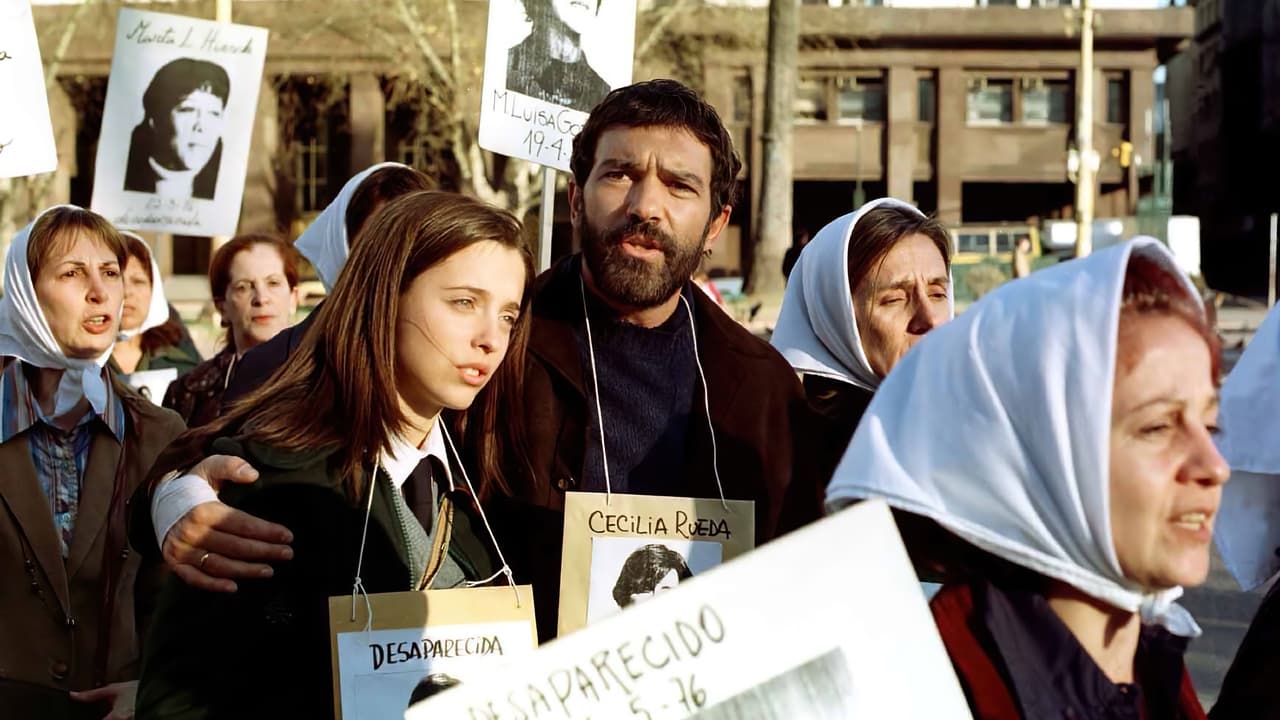

I like Black Panther, but I didn't like this movie.
... View MoreFun premise, good actors, bad writing. This film seemed to have potential at the beginning but it quickly devolves into a trite action film. Ultimately it's very boring.
... View MoreThis movie feels like it was made purely to piss off people who want good shows
... View MoreThrough painfully honest and emotional moments, the movie becomes irresistibly relatable
... View MoreIf you have to resort to chicanery including the likes of clairvoyance, many explicit scenes of sodomizing 'actors', child rape and other equal horrors to get your message across well then you should place 'phony' in your title.Not only was the film's major theme (unlawful detention of political opponents) overshadowed by the much porn shooting, the whole purpose for producing this trash remains unclear.The producers/directors/actors together should be ashamed for participating in this folly. By far this is the 'worst of the worst' of any international films I've viewed.Moreover, I can't believe that anyone would financially back such poppycock. Well, believe it or not, they did but to their disgrace.This film doesn't even deserve a single star. Really, I wish I could get back the whole two hours I wasted.
... View MoreImagining Argentina is one of those odd little features that you acknowledge is trying to do the right thing in wanting to explore the historical content it's taking and get across that sense of fear and desperation linked to its harrowing subject matter of oppression and living under a ruling state, but just generally leaves a lot to be desired. It's as if the piece exists to detail and document a happening in a place at a time but, similarly to something like 2007's Goodbye Bafana, feels as if it's the sort of thing a GCSE history teacher might put on in front of the class when the time arises on the syllabus to cover 1970s-80s Argentinian oppression. Imagining Argentina is a strange effort, the head in one place; the heart in another. Adapted from a 1987 Lawrence Thornton novel, it wants to bring to attention what happened in Argentina from 1976 to '83 between the people and The State and how the strict, authoritarian regime in place ruled with fists of iron. The trouble is, 'The Mask of Zorro played for grimaces' is the last thing we needed and the last thing the sort of talent on display needed to be roped into doing. With better direction, a more even tone and the Spanish language omnipresent; Imagining Argentina may have been a more interesting effort. As it is, it's a mildly diverting piece and achieves very basically what it sets out to do: get us to go away at the end with a forlorn expression and to feel slightly down about ourselves.Items that gripe and frustrate arrive all too often; the fact the entire film is in English rather than in Spanish being one, an odd occurrence which has been followed through with so as to garner the widest possible audience for a subject the producers clearly think many need to be aware of, especially those whom do not have the patience for subtitles. To make the subject matter more accessible, stars such as Emma Thompson and Antonio Banderas have been cast with Banderas doing his best, but with respect: failing, in the role of the rugged; bearded; dishevelled; grizzled victim of state nastiness complete with mournful eyes and low, gruff voice. And thirdly, the film annoyingly breaks off on a number of occurrences for tidbits which shift our attention away from what's really happening within the universe of the film and onto the wider spectrum of the historical event being explored. When Thompson's character sits in jail and states something like "all this should be remembered", it's not the character in that present situation speaking – it's the screenwriter and production crew talking of the greater extent of the overall event.The film begins with stock footage of police battery and oppression mixed in with protesting people as Banderas' character Carlos Rueda informs us of the 'need to confront the past'. Thompson plays his wife Cecilia, a writer whom is taken by the police and suffers in prison to the brutality of the guards, later with daughter Teresa; this after some problems the state had with a recent article she wrote. Thompson's character's marriage to Banderas' character is systematic of the co-British/Spanish partnership the film has with its origins, two of the best of either nations' acting talent coming together just as two respective film industries are to produce. The people are powerless and the police seemingly come at will to take individuals away, but the film gives its protagonistic group an odd quirk of an advantage in Carlos: someone with strange telepathic abilities to 'see' where he is not and consequently what it is that's happening many miles away. Like his role with the people in their ongoing fight for justice with their protests and placards, Carlos is an-oft distanced contributor at a local performance theatre when it is revealed he plays acoustic guitar to various plays, thus contributing to an overall cause or incident of spectacle but keeping his known presence to a minimum. The fact that Carlos is still essentially working for a theatre group, of whom produce specific texts, acts nicely as a slow burning item when we remember wife Cecilia was taken on a count of desired state censorship for an item or text she produced. The burning question is, as to when the state will or might come for Carlos given his link to the publication of texts.After the early exchanges of how Carlos and Cecilia fell in love, emphasis shifts into a wider context of struggle; an entire nation's representative burden placed onto the shoulders of one man in Carlos. His nightmares; his fears and his difficulties to function, at one point ending up at a bird sanctuary with two immigrant Holocaust survivors and sharing a quiet moment of solace in a place you feel The State wouldn't go anywhere near out of lack of necessity. They both share a space; both victims of a greater extent of power and control issued by a ruling force, although there will be those who find issue with this attempted link in that Carlos is only a victim through his wife and daughter's taking, therefore is not a first hand sufferer. The film is not some gripping yarn about someone trying to make sense of the political situation as well as find one's wife, but is a more sombre piece encompassing Buñuel-inspired breakaway moments and a light hearted tone crammed in amongst a flurry of grimy, tough content linked to all sorts of sordid acts playing out in the prison that houses Cecilia and Teresa. Why The State never actually go out there and apprehend Carlos, despite knowing of his abilities and his location, I'll never know and why the makers of this went down the easy, accessible and wavy route they did with this subject matter is an additional puzzler, one that only they will really know the answer to.
... View MoreI am pretty sure that it is not possible for someone other than an Argentine to make a film about this subject and have it matter. These are people who at the beginning of the terror supported it wholeheartedly. The military simply responded to what they saw was a terrorist threat by arresting without process and torturing. Starting small means starting; once you cross the line, everything else is trivial. And so 6 years of what ramped up to 3o police murders a day in Buenos Aires.So this thing lacks power as a story about Argentine horror. But even through all its faults, it still rings true and haunts about things at home: power corrupted and evil. Torture to protect citizens never does. The film is incredibly muffed, in pretty much all dimensions except...There are two good scenes. One is when the husband of the newly missing wife is comforted by his daughter in a somewhat sexual way. This was made for American consumption, and though the interaction may be genuinely Latin, the implication in this context is plain. It was a powerful scene and sets up all that follows.The second powerful scene is the unveiling of a spy. There is only a second that matters, when the man knows he is revealed and you see not panic but blame to his informant. It happens fact but it matters.Otherwise, what we have is a powerfully conceived set of folding narratives: a man as a playwright (precisely as in "The Lives of Others") in a film with deliberate dissonance. And him further as a psychic, telling the story to us and other characters as it happens to him. In other hands, this could have worked, especially with the intended fold from then there to now here.Tangos, l'exil de Gardel, was not good, but still better and at least genuine.Ted's Evaluation -- 1 of 3: You can find something better to do with this part of your life.
... View MoreFirst of all, let's address the fact that this movie is not as bad as I'd heard it was. That being said, it wasn't amazing either. I think they had their heart in the right place in that they tried to convey how horrible and inhumane the climate was in Argentina during the military dictatorship, and I especially liked that they tell the viewer all the places where this is happening right now or has happened. The one major complaint I have with this movie is the whole magical realism/clairvoyance deal in the plot. It detracts from the message of the film. I love Emma Thompson and as usual she's great in this film. She shows grace and humanity in situations that are not easy to handle. Antonio Banderas is great too, but unfortunately his character gets saddled with the aforementioned psychic type deal. I think if that had been left out Banderas would have had more to work with. The rest of the characters come across as more symbolic than anything. I wish we could have seen them as individuals instead of as standing in for the many "disappeared". It is said that sometimes the victims of crimes become faceless, but here they become only a face. I think the victims are owed a little more than that. Overall, it wasn't bad, but two far better films would be Missing with Jack Lemmon and Sissy Spacek, great film. and The Official Story. Those two manage to not only convey the horror, but the human aspect as well, or rather the dehumanizing aspect. See this movie if you like,you could do worse, but if you want the real deal, go for Missing or The Official Story.
... View More